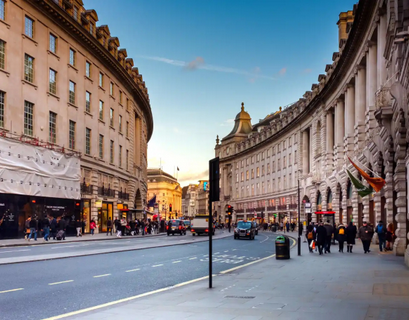How have the festive shopping season, and 2023 as a whole, been for your high-end brand so far? Alas, many of the recent statistics have pointed to tough times being experienced even by many players at the luxury end of the market.
This much was recently reported by Glossy, which said that retail sales volumes in Britain had continued to decline during October. It is another illustration of the scale of the challenge that the UK economy is still facing as worries about a possible recession persist.
Hopes of a “bounce back” in retail demand haven’t been realised in 2023
The media brand quoted a retail expert, Rebecca Bingley, who perhaps summed up much of the mood among brands and stores in the UK.
Ms Bingley observed that “brands have been feeling this softness in sales over the last couple of months, and we have all become very used to seeing continued ad-hoc promotions as businesses try to re-balance their excess inventory and revenue forecasts.”
She said that while there had been widespread predictions among retailers and brands of a “bounce back of demand” this past year, such hopes had not materialised.
The retail expert said that as a consequence, brands would need to “take stock, literally, and pay close attention to their stock forecasting.”
High-end brands have had no shortage of challenges to grapple with
With such issues as the ongoing cost-of-living crisis, a lack of VAT-free shopping since Brexit, and disappointingly low numbers of tourists having all presented difficulties for UK brands and retailers in 2023, it should no great surprise that retail sales in the country have been on the muted side.
According to data from the Office for National Statistics (ONS), retail sales volumes during October 2023 fell by 0.3% on a month-over-month basis, after a 1.1% decrease had been observed in September.
However, the Glossy report also drew attention to the particular difficulties that even high-end brands faced. It quoted a spokesperson for a luxury footwear brand as saying that the end of tax-free shopping for tourists had “greatly impacted how consumers shop” in the country.
The spokesperson went on to say that this change had affected the status of London “as one of the top fashion cities, as people can easily take flights or the Eurostar and spend in Europe,” where tax-free purchases continue to be possible.
It means that, for brands that have stores in more than one market, London is reportedly falling down their lists of top locations for tourists to shop.
The aforementioned footwear brand also noted that with local living costs having gone up, there had been a greater tendency for customers to prioritise “carryover styles rather than seasonal pieces. People want to maximise their purchases.”
As a consequence of this, the spokesperson said, the brand was also focusing on loyalty, manifesting in in-store events and a localised marketing strategy. Indeed, if you are reading this as a key decision-maker for a high-end brand, you might have already seen similar implications for your own business’s luxury marketing strategy.
If you are determined to get that strategy right – even amid the tests that 2024 is set to present for brands like yours as you look to extract the best value out of every marketing intervention you make – please feel free to contact our London-based, but globally minded digital and strategic professionals at Skywire London today.
